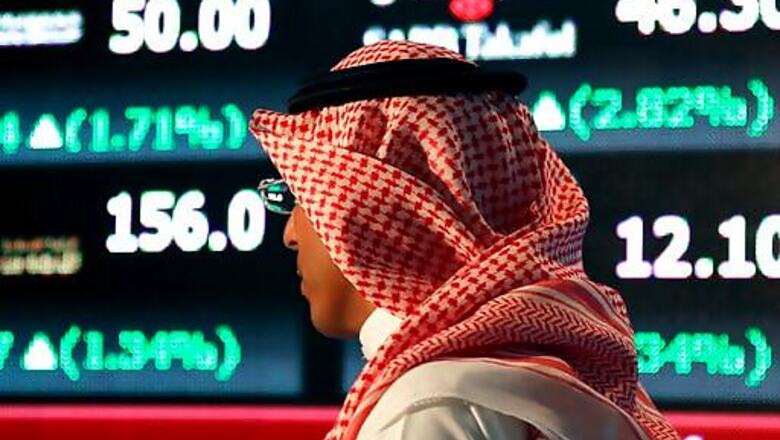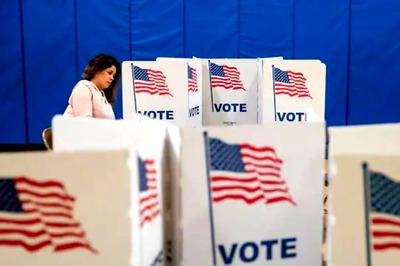
views
DUBAI, United Arab Emirates: Saudi Arabia’s National Commercial Bank said Sunday it will purchase rival lender Samba Financial Group in a deal valued at $14.8 billion, creating what would become the kingdom’s largest bank.
The bank will control some $223 billion in assets and a market capitalization of $46 billion after the merger wins regulatory approvals and is completed, National Commercial Bank said in a filing on Riyadh’s Tadawul stock market announcing the deal.
The new bank will control a quarter of all banking in the kingdom, it said.
NCB will pay Samba a premium of 3.5% on the closing price of its stock Thursday in the deal, which will see it dissolve into the NCB brand.
The bank’s largest shareholders will be Saudi Arabia’s Private Investment Fund, the Public Pension Agency and the General Organization for Social Insurance, all government entities.
The two banks described the merger as fitting into the kingdom’s Vision 2030 plan, the brainchild of Saudi Arabia’s assertive Crown Prince Mohammed bin Salman. That plan calls for Saudi Arabia to ween itself off of relying on oil exports while creating new jobs for its millions of young people.
Saudi Arabia is undergoing a historic transformation with Vision 2030,” NCB chairman Saeed al-Ghamdi said in a statement. Our ambition is to create a national champion that can facilitate the transformation envisaged under Vision 2030 and create a pioneer for next-generation banking services that nurtures tomorrows industry leaders.”
NCB was Saudi Arabia’s first bank to be officially licensed in the kingdom back in 1953, created out of two currency trading houses. Samba grew out of Citibank, which established a presence in the oil-rich kingdom in 1955. The bank became Saudi American Bank following a royal decree in 1980, with Citibank slowly divesting over time until selling its last shares in 2004.
The merger had been rumored for months. Ratings agency Moodys says it will help NCB become one of the world’s largest Shariah, or Islamic law, compliant banks alongside fellow Saudi bank Al Rajhi and Kuwait Finance House. It also comes as the kingdom grapples with both the coronavirus pandemic and oil prices being down to around $40 a barrel amid a global economic slowdown.
A combination of lower oil prices, deteriorating economic conditions and fierce competition among banks is driving a new wave of mergers and acquisitions in Saudi Arabia and across the wider Gulf region, Moody’s said in September.
___
Follow Jon Gambrell on Twitter at www.twitter.com/jongambrellAP.
Disclaimer: This post has been auto-published from an agency feed without any modifications to the text and has not been reviewed by an editor
Read all the Latest News and Breaking News here


















Comments
0 comment